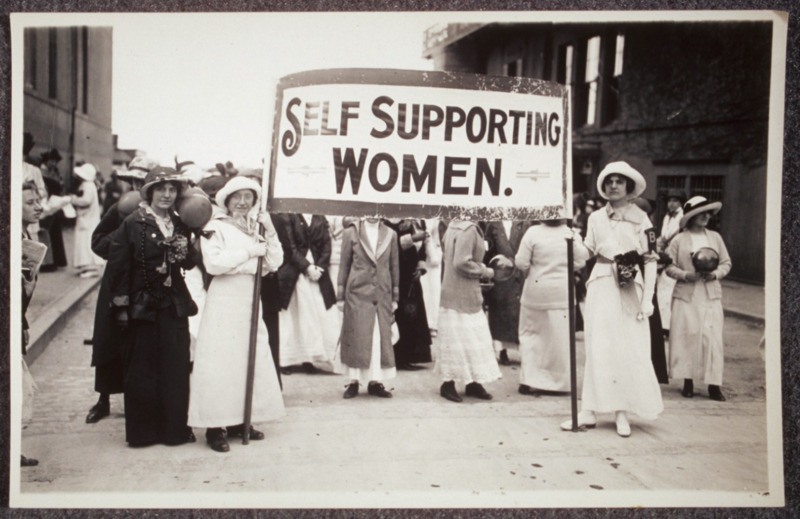Conclusion: Becoming Modern
As the frontier closed in the early decades of the 20th century, advocates for women's rights were gaining political strength in the United States. First wave feminism and suffragist movements campaigned hard to advance their causes; their efforts ultimately resulted in passage of the 19th Amendment, granting women the right to vote. This accomplishment formally marks a major milestone in progress towards breaking women free of the antiquated "private sphere" to which they have traditionally been confined.
The frontier fort was metaphorically a live political laboratory in which officers' wives were granted nearly equal status to their husbands. As leaders, rebels, and hosts, these women transcended the limits society placed upon them. In doing so, they proved their ability to fulfill roles in the same capacity as their husbands. Their unique position in society and history also enabled them to exhibit behaviors atypical for women of their time, thus helping shatter myths of man’s monopoly on valor and martial skill.
This environment’s raw data – the experiences, correspondence, and memories of all involved – reveals trends of positively shifting American attitudes regarding gender norms. Indeed, they were approaching modern-day sentiments. In an environment devoid of creature comforts yet full of mortal threats, survival was the highest priority. Fort societies could ill afford dissension in the ranks of soldier and civilian alike. Therefore, divisions along gender lines – the figurative space between separate spheres – dissolved.
